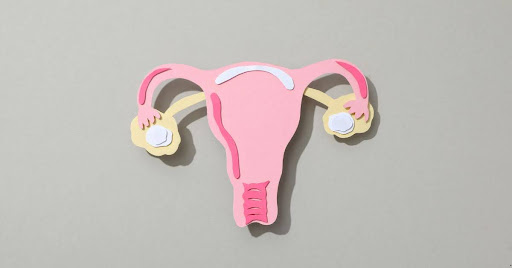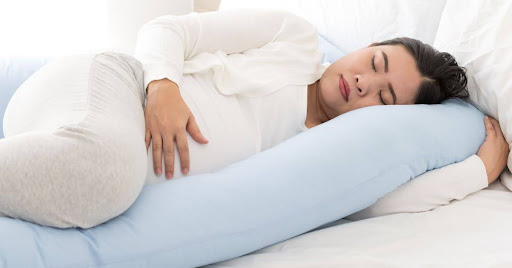What Is the Average Age for Menopause in India?
4 min read
By DocGenie , Published on - 11 January 2025In this article, we explore the average age of menopause in Indian women, common symptoms, causes of early menopause, long-term health concerns, and practical tips for managing this phase effectively.
What Is Menopause and What Triggers It?
 Menopause is defined as the point in a woman’s life when she has not had a menstrual period for 12 consecutive months. It is a natural biological process caused by the decline in ovarian function and estrogen production.
Menopause is defined as the point in a woman’s life when she has not had a menstrual period for 12 consecutive months. It is a natural biological process caused by the decline in ovarian function and estrogen production.
Stages of Menopause:
- Perimenopause: The transition phase before menopause, marked by irregular periods and fluctuating hormone levels.
- Menopause: Confirmed when periods have ceased for 12 months.
- Postmenopause: The years following menopause when symptoms may ease, but health risks such as osteoporosis increase.
What Is the Average Age for Menopause in India?
 In India, women generally reach menopause between ages 46 and 48, which is earlier than the global average of 51 years.
In India, women generally reach menopause between ages 46 and 48, which is earlier than the global average of 51 years.Why Is It Earlier in India?
- Genetics: Family history plays a key role in menopause timing.
- Nutrition and lifestyle: Indian women may face nutritional deficiencies and stress that accelerate ovarian aging.
- Socioeconomic factors: Lower BMI, poor healthcare access, and reproductive health concerns may contribute.
- Environmental and regional factors: Exposure to pollutants or heavy physical labor may also influence early menopause.
What Are the Symptoms of Menopause?
 The symptoms of menopause can begin during perimenopause and last for several years.
The symptoms of menopause can begin during perimenopause and last for several years.Common Symptoms Include:
- Hot flashes: Sudden warmth in the upper body, face, and neck.
- Night sweats: Excessive sweating during sleep that may disrupt rest.
- Mood swings: Irritability, anxiety, or even mild depression.
- Irregular periods: Menstrual cycles may be skipped or become heavier/lighter.
- Sleep disturbances: Difficulty falling or staying asleep.
- Vaginal dryness: Leads to discomfort during intimacy or increased risk of infections.
- Decreased libido: Reduced sexual desire due to hormonal fluctuations.
- Weight gain: Particularly around the abdomen due to metabolic slowdown.
- Hair thinning or dry skin: Caused by lower estrogen levels.
These symptoms vary in intensity and duration from one woman to another.
Can Menopause Occur Earlier Than Usual?
Yes. Premature menopause (before age 40) and early menopause (between 40–45) are not uncommon and can have long-term health implications.Causes of Early Menopause:
- Genetic predisposition
- Ovarian or uterine surgery
- Chemotherapy or radiation therapy
- Smoking or alcohol abuse
- Autoimmune diseases
- Chronic stress and poor nutrition
Early menopause may result in an increased risk of osteoporosis, infertility, and heart disease if not monitored and managed.
Long-Term Health Risks After Menopause
Reduced estrogen levels after menopause can impact overall health in the long term. Understanding these risks can help women take preventive action.Health Risks to Watch:
- Osteoporosis: Bone density reduces, increasing the risk of fractures.
- Cardiovascular disease: Estrogen protects the heart; its decline can raise cholesterol and blood pressure.
- Urinary incontinence: Weak pelvic floor muscles may lead to leakage or infections.
- Memory and cognition changes: Some women experience forgetfulness or brain fog.
- Weight gain and metabolic syndrome: Increases risk of type 2 diabetes and hypertension.
Regular health screenings and preventive care are essential after menopause.
How Is Menopause Diagnosed?
Menopause is diagnosed clinically, but certain tests help rule out other causes of irregular periods or hormonal changes.Diagnostic Tests:
- FSH Test: Elevated Follicle-Stimulating Hormone levels suggest ovarian inactivity.
- Estradiol Test: Low estrogen confirms the hormonal transition.
- Thyroid Tests: Rule out thyroid dysfunction, which can mimic menopause symptoms.
- Lipid profile and bone density scan: To assess cardiovascular and skeletal health.
How to Manage Menopause Naturally?
Many women manage menopause symptoms without medication by focusing on diet, exercise, and lifestyle.Lifestyle and Dietary Tips:
- Exercise regularly: Walking, yoga, and strength training improve mood and bone health.
- Eat a balanced diet: Include calcium, Vitamin D, iron, and phytoestrogens (like soy, flaxseeds, and lentils).
- Avoid triggers: Caffeine, spicy foods, and alcohol can worsen hot flashes.
- Hydrate well: Drink 2–3 liters of water daily to manage dryness and fatigue.
- Use natural lubricants: For vaginal dryness and improved comfort.
- Practice mindfulness: Meditation, breathing exercises, or counseling help cope with emotional changes.
What Is Hormone Replacement Therapy (HRT)?
HRT involves supplementing the body with estrogen (and sometimes progesterone) to reduce menopausal symptoms and prevent long-term complications like bone loss.Pros:
- Effective in reducing hot flashes, night sweats, and mood swings.
- Helps maintain bone density.
- May reduce risk of colon cancer.
Cons:
- Not suitable for women with a history of breast cancer, blood clots, or liver disease.
- Slight increased risk of heart disease and stroke in some women.
- Should only be used under a doctor’s supervision and for a limited time.



